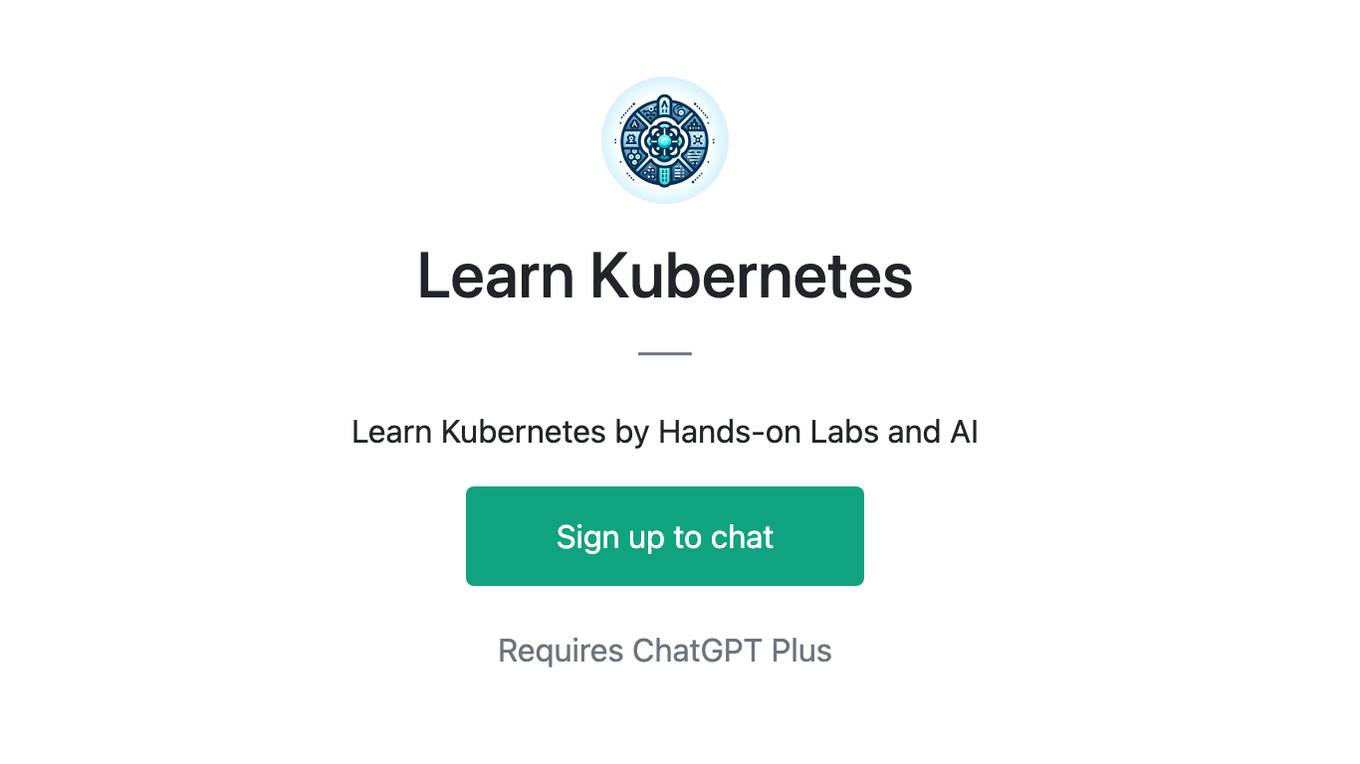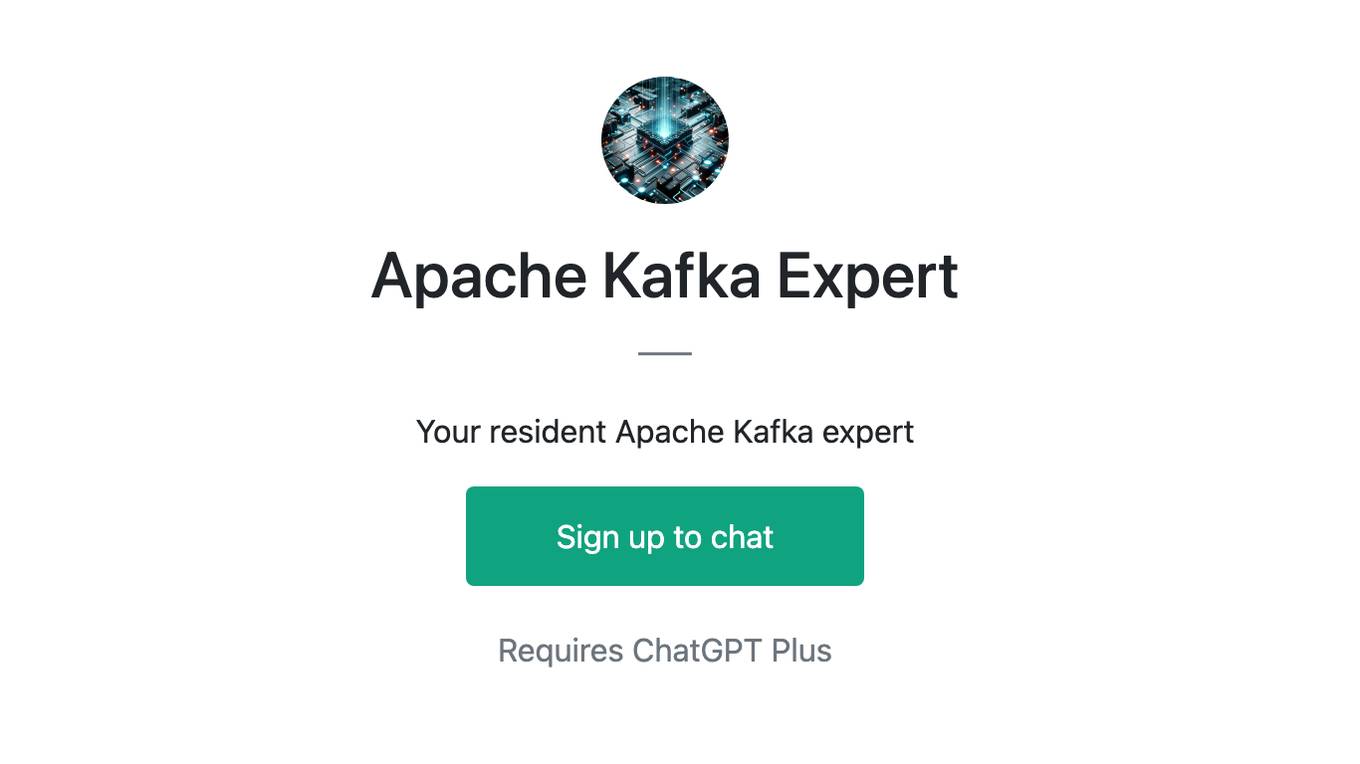Best AI tools for< Cluster Texts >
20 - AI tool Sites
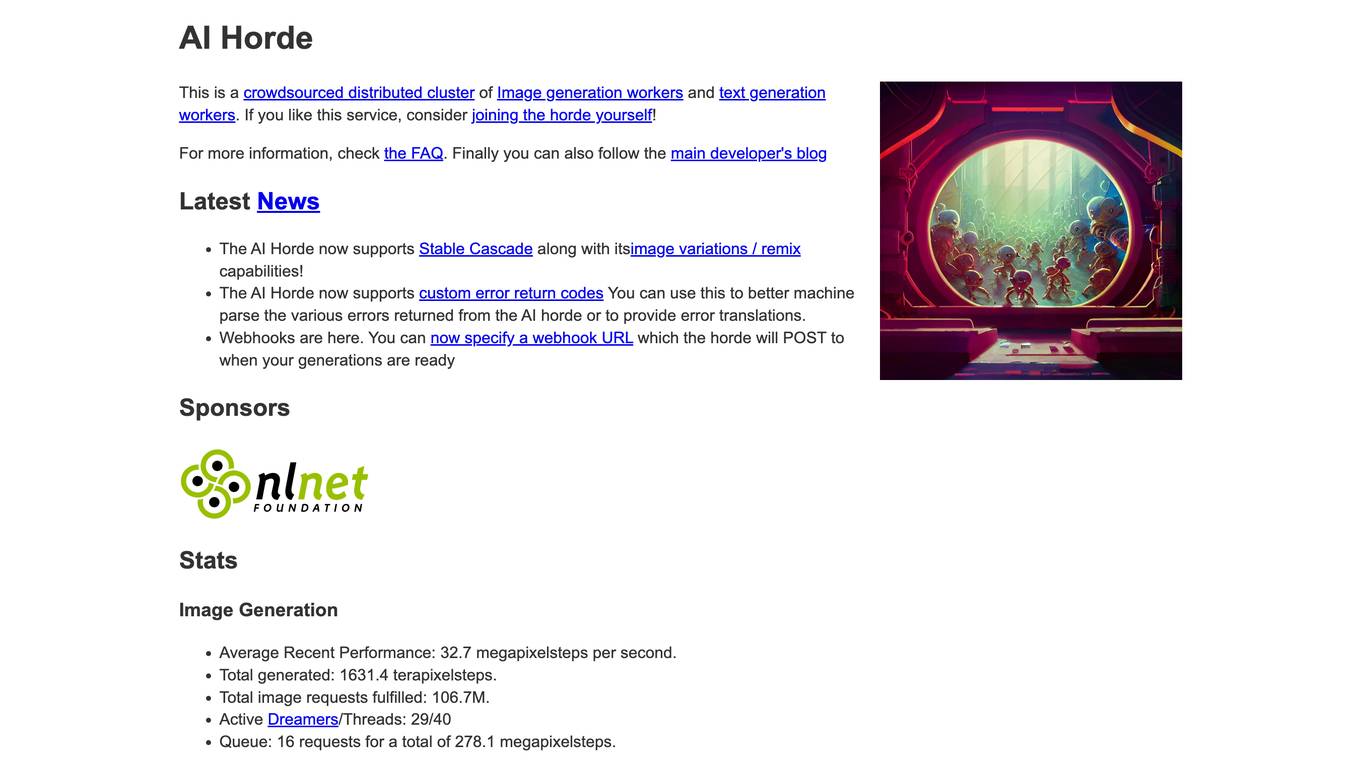
AI Horde
AI Horde is a crowdsourced distributed cluster of Image generation workers and text generation workers. It provides an API and various tools for developers to integrate AI-powered image and text generation into their applications. The AI Horde is supported by a community of volunteers who contribute their GPU processing power to the cluster.

Meticulous
Meticulous is an AI tool that revolutionizes frontend testing by automatically generating and maintaining test suites for web applications. It eliminates the need for manual test writing and maintenance, ensuring comprehensive test coverage without the hassle. Meticulous uses AI to monitor user interactions, generate test suites, and provide visual end-to-end testing capabilities. It offers lightning-fast testing, parallelized across a compute cluster, and integrates seamlessly with existing test suites. The tool is battle-tested to handle complex applications and provides developers with confidence in their code changes.
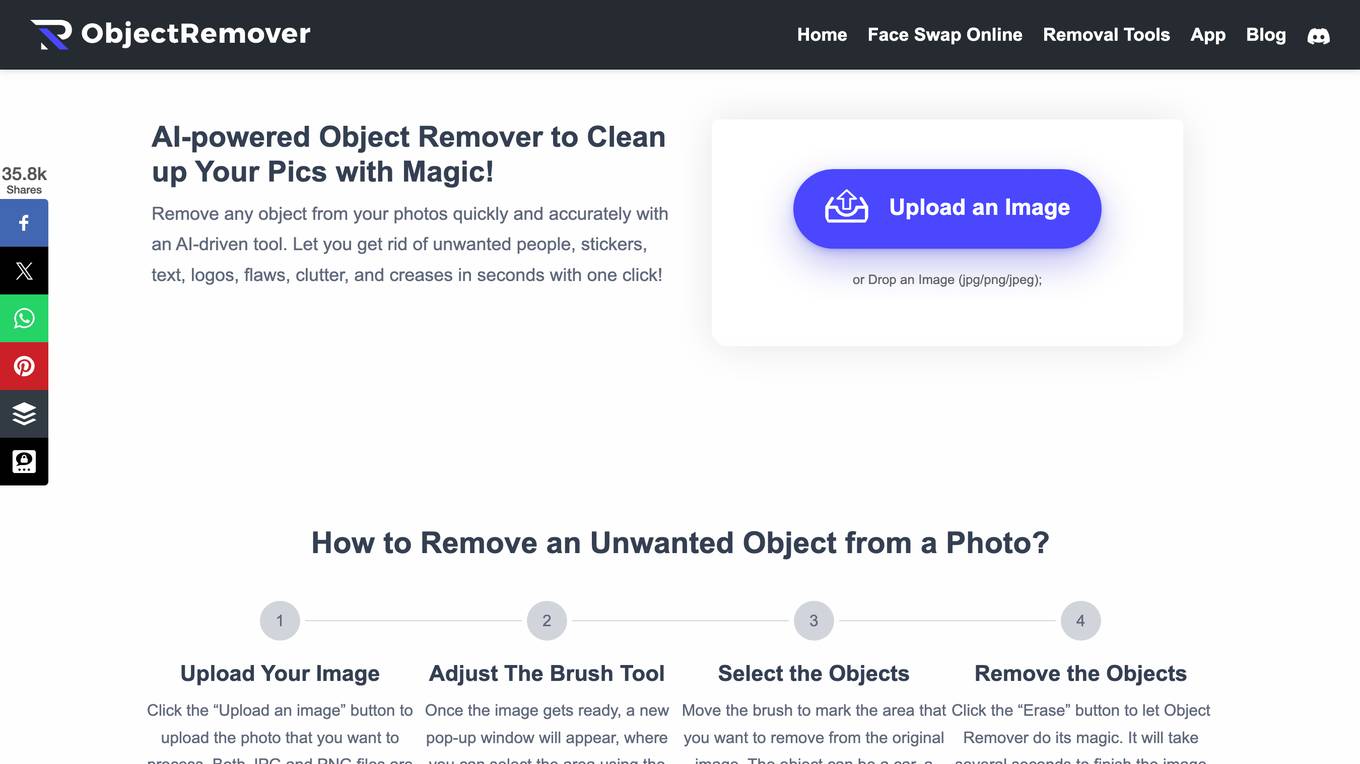
Object Remover
Object Remover is an AI-powered online tool that allows users to remove unwanted objects from their photos quickly and accurately. It uses advanced algorithms to analyze images and erase elements like people, stickers, text, logos, flaws, clutter, and creases with just one click. The tool is user-friendly, provides high-quality results, processes images fast, and offers a preview of the edited image before downloading. Object Remover is suitable for e-commerce product images, social media posts, and any photos that need object removal. Users can enjoy watermark-free editing and benefit from the AI-powered technology for picture-perfect results.
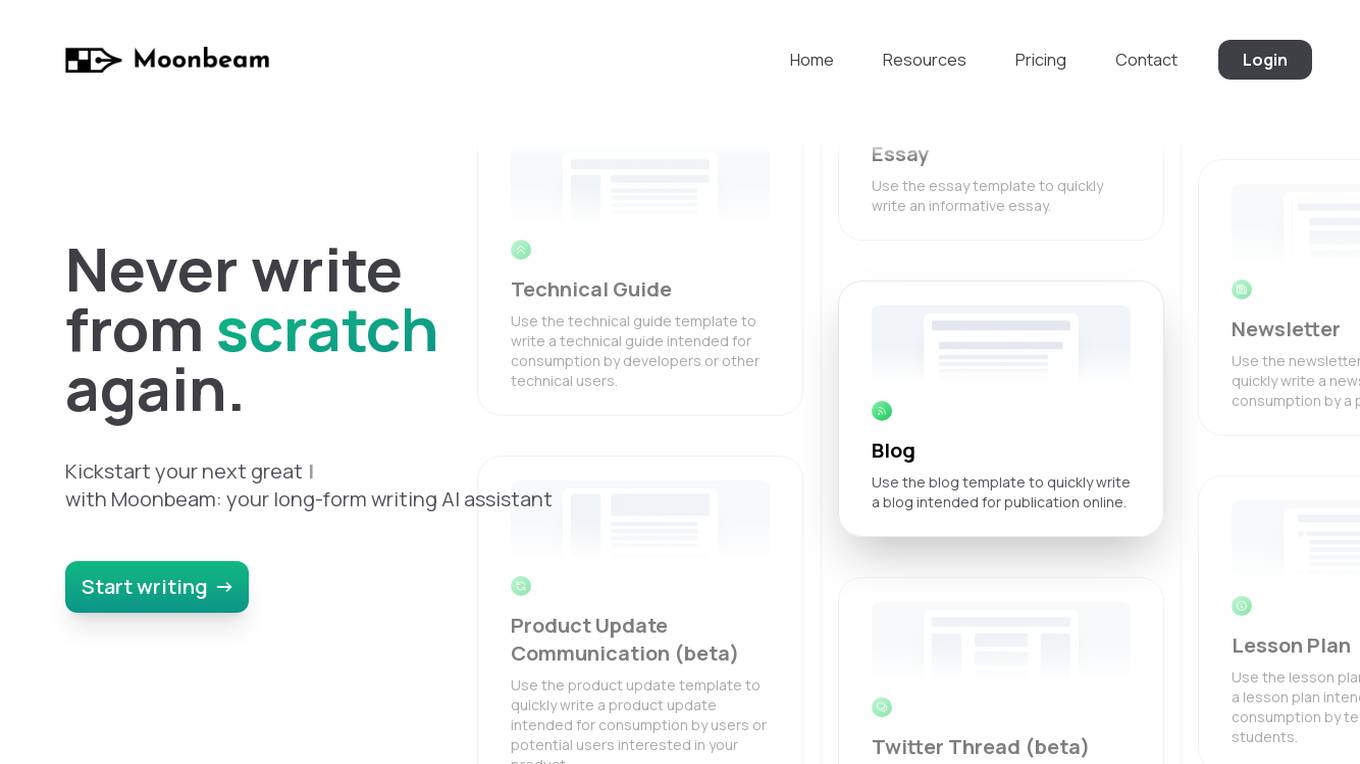
Moonbeam
Moonbeam is an AI writing assistant designed to help users create various types of content such as essays, articles, stories, and blogs. It offers a range of templates and features to streamline the writing process, including a text expander and a custom style generator. Moonbeam stands out for its ability to generate content clusters, provide real-time feedback through Smart Chat, and facilitate team collaboration. Users can also benefit from its powerful text editor and seamless integration with GPT-4 technology for enhanced content creation.
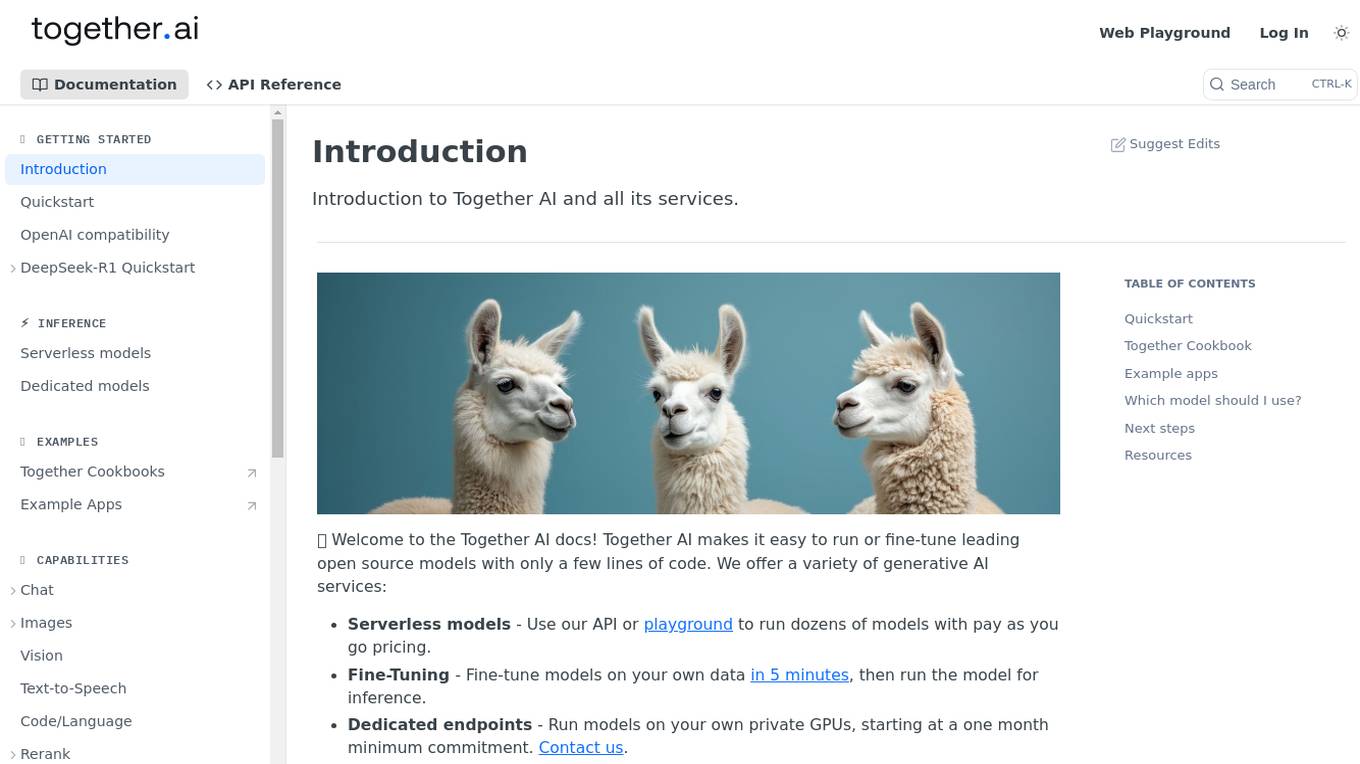
Together AI
Together AI is an AI tool that offers a variety of generative AI services, including serverless models, fine-tuning capabilities, dedicated endpoints, and GPU clusters. Users can run or fine-tune leading open source models with only a few lines of code. The platform provides a range of functionalities for tasks such as chat, vision, text-to-speech, code/language reranking, and more. Together AI aims to simplify the process of utilizing AI models for various applications.
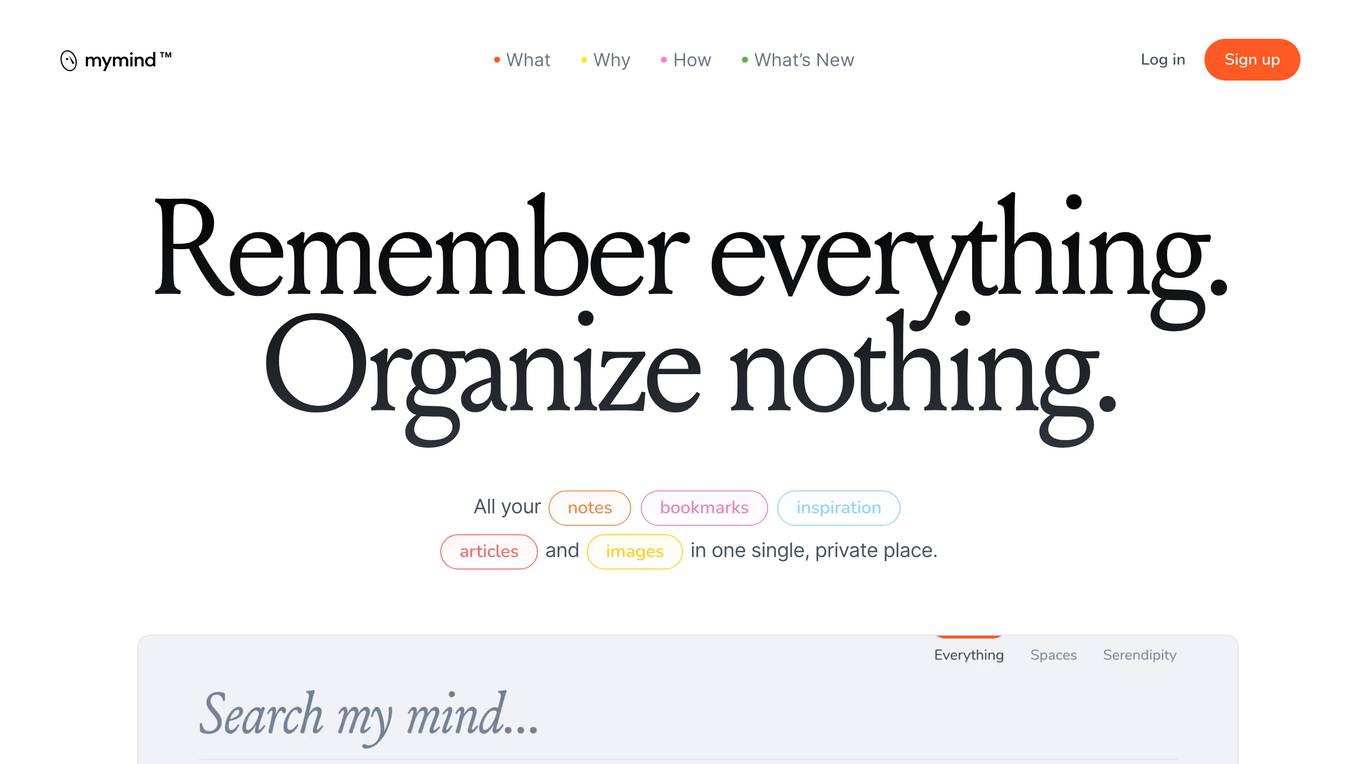
mymind
mymind is an AI-powered extension designed to help users organize and remember everything in one private place. It offers features like smart bookmarking, text recognition, and instant collections to streamline information management. The application aims to provide a clutter-free and personalized experience for users to save, organize, and access their notes, bookmarks, inspiration, articles, and images effortlessly.
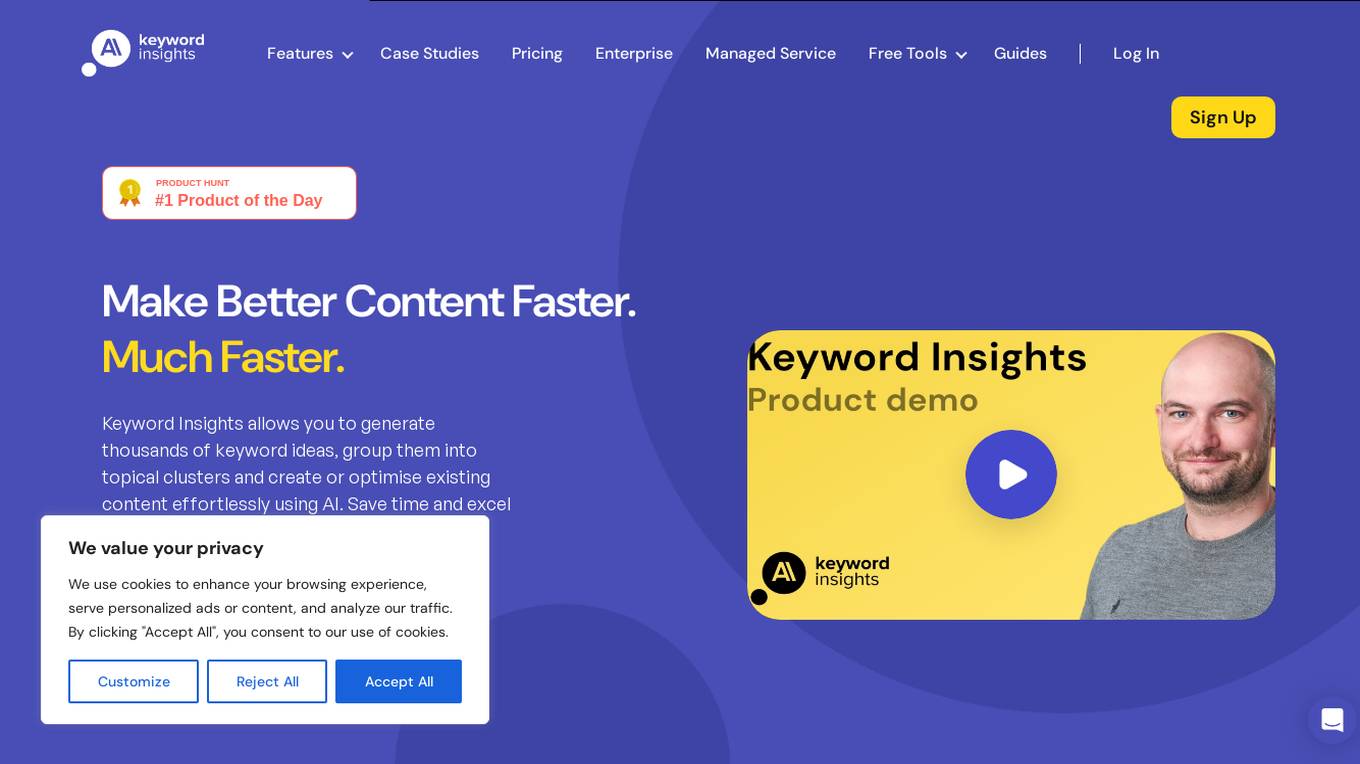
Keyword Insights
Keyword Insights is an AI-driven content marketing platform that offers a suite of tools to streamline keyword research, clustering, search intent analysis, content brief generation, and AI-powered writing assistance. The platform enables users to generate thousands of keyword ideas, group them into topical clusters, optimize existing content effortlessly, and excel in SEO without requiring expertise. Trusted by global agencies, SMBs, content marketers, and SEO experts, Keyword Insights helps users execute content marketing efforts with precision, efficiency, and effectiveness.

Pulse
Pulse is a world-class expert support tool for BigData stacks, specifically focusing on ensuring the stability and performance of Elasticsearch and OpenSearch clusters. It offers early issue detection, AI-generated insights, and expert support to optimize performance, reduce costs, and align with user needs. Pulse leverages AI for issue detection and root-cause analysis, complemented by real human expertise, making it a strategic ally in search cluster management.
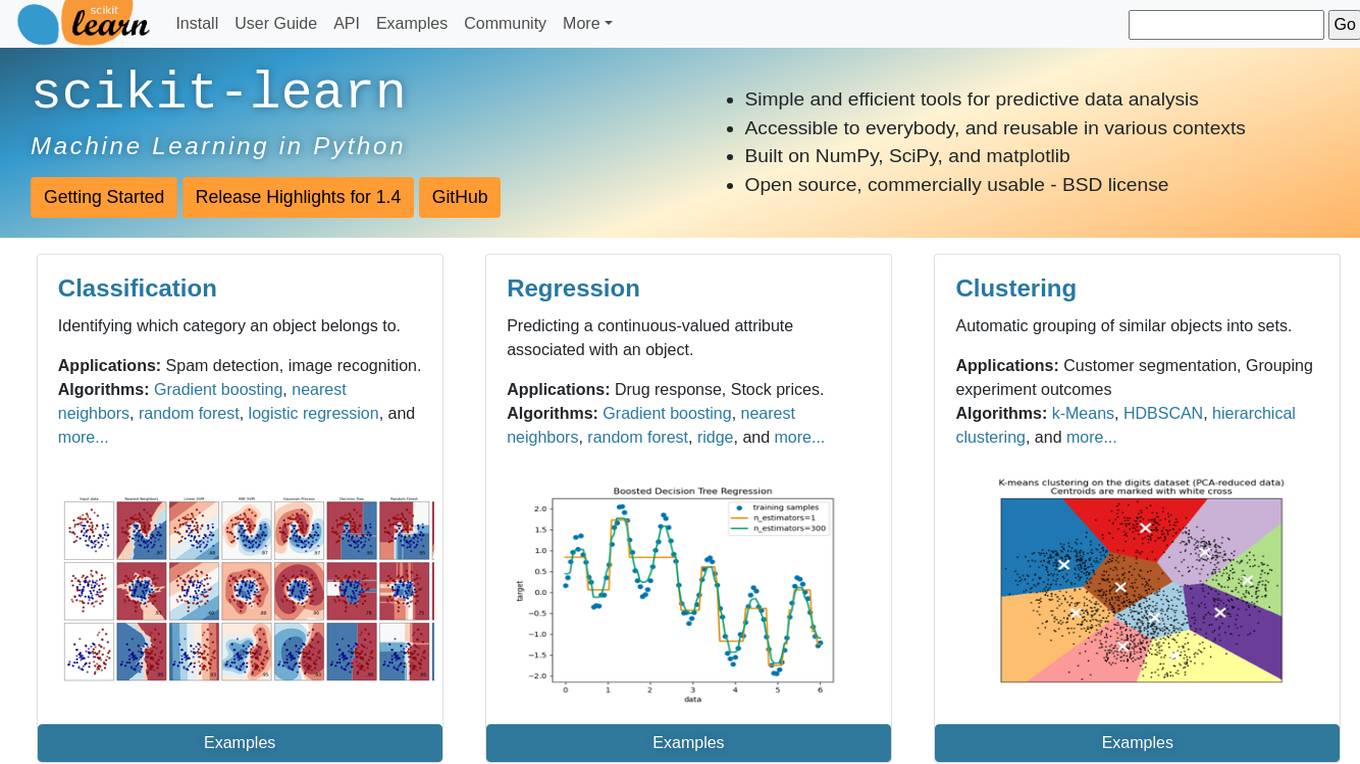
scikit-learn
Scikit-learn is a free software machine learning library for the Python programming language. It features various classification, regression and clustering algorithms including support vector machines, random forests, gradient boosting, k-means and DBSCAN, and is designed to interoperate with the Python numerical and scientific libraries NumPy and SciPy.
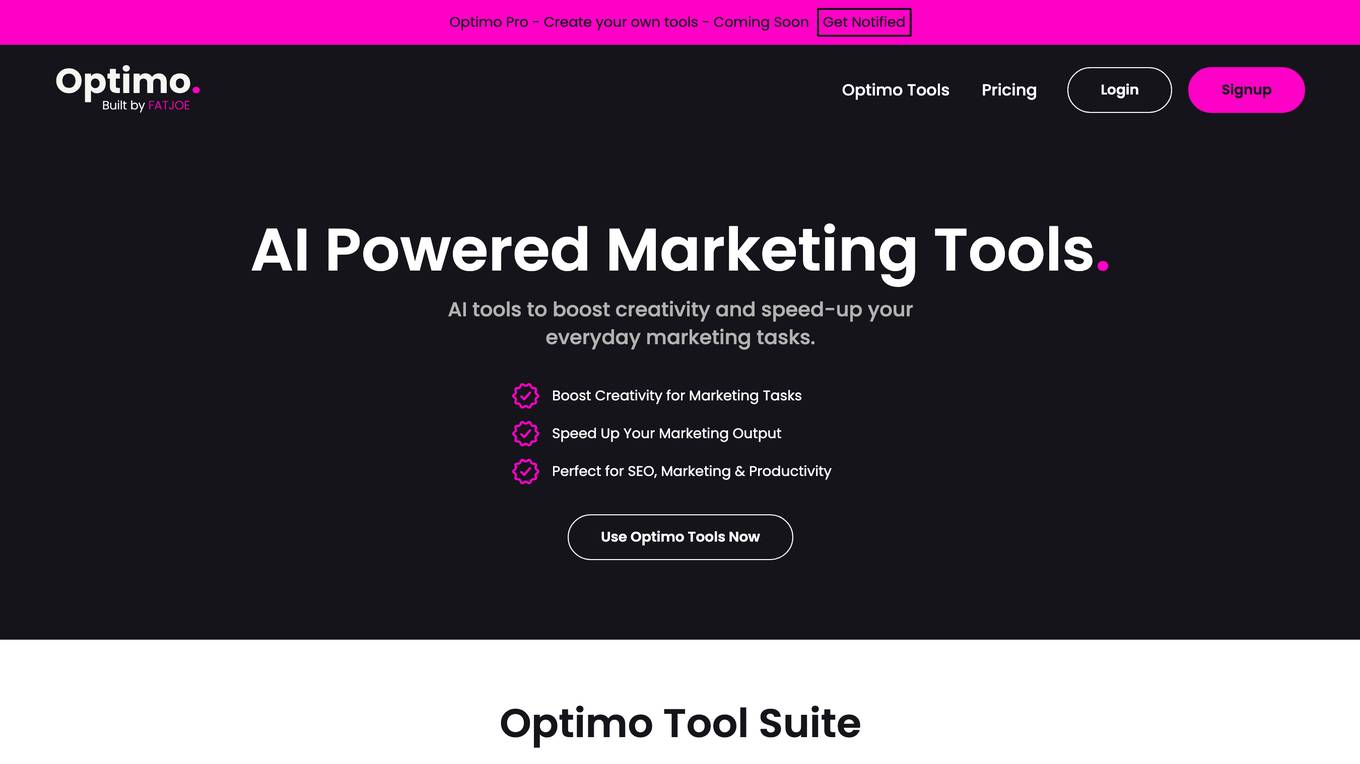
Optimo
Optimo is a suite of AI-powered marketing tools designed to boost creativity and speed up everyday marketing tasks. With Optimo, you can generate Instagram captions, blog post titles, keyword clusters, blog post briefs, and Facebook ad information in seconds. Optimo is perfect for SEO, marketing, and productivity.
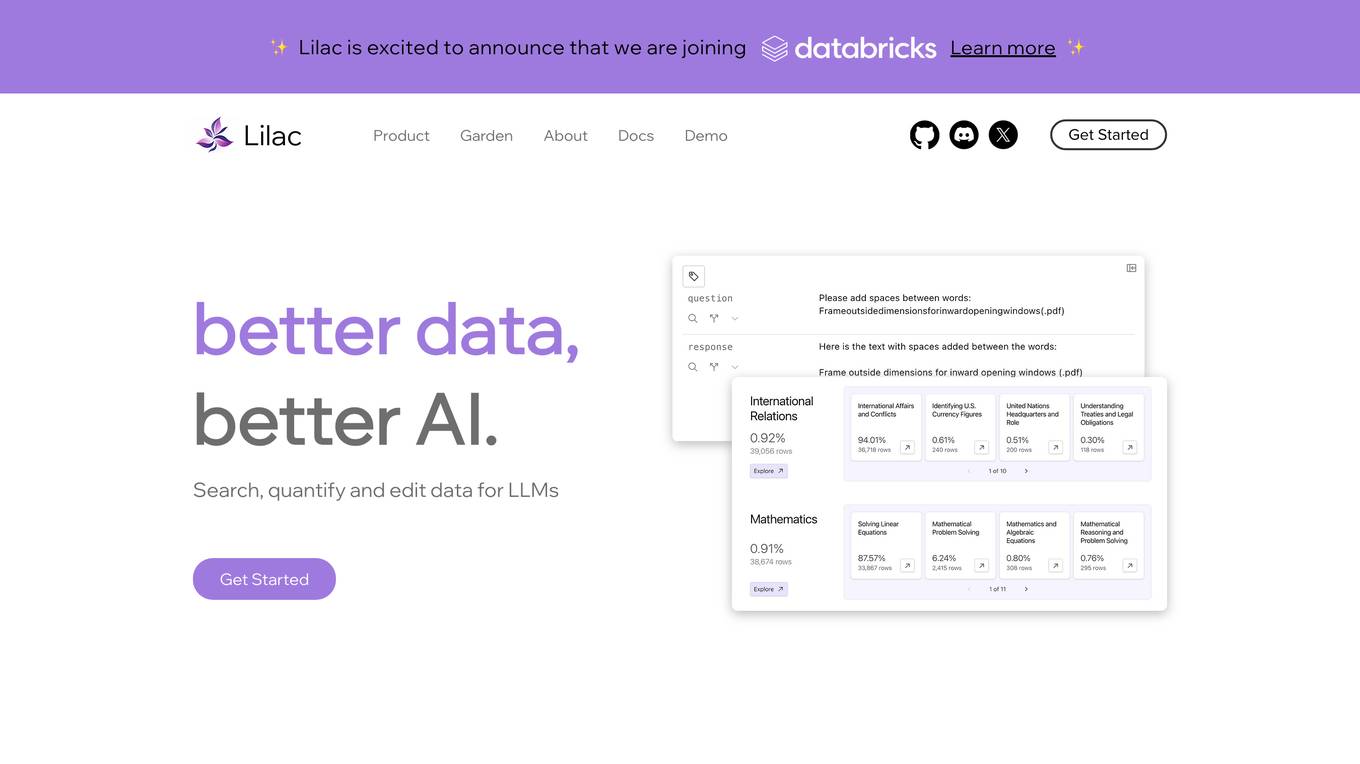
Lilac
Lilac is an AI tool designed to enhance data quality and exploration for AI applications. It offers features such as data search, quantification, editing, clustering, semantic search, field comparison, and fuzzy-concept search. Lilac enables users to accelerate dataset computations and transformations, making it a valuable asset for data scientists and AI practitioners. The tool is trusted by Alignment Lab and is recommended for working with LLM datasets.
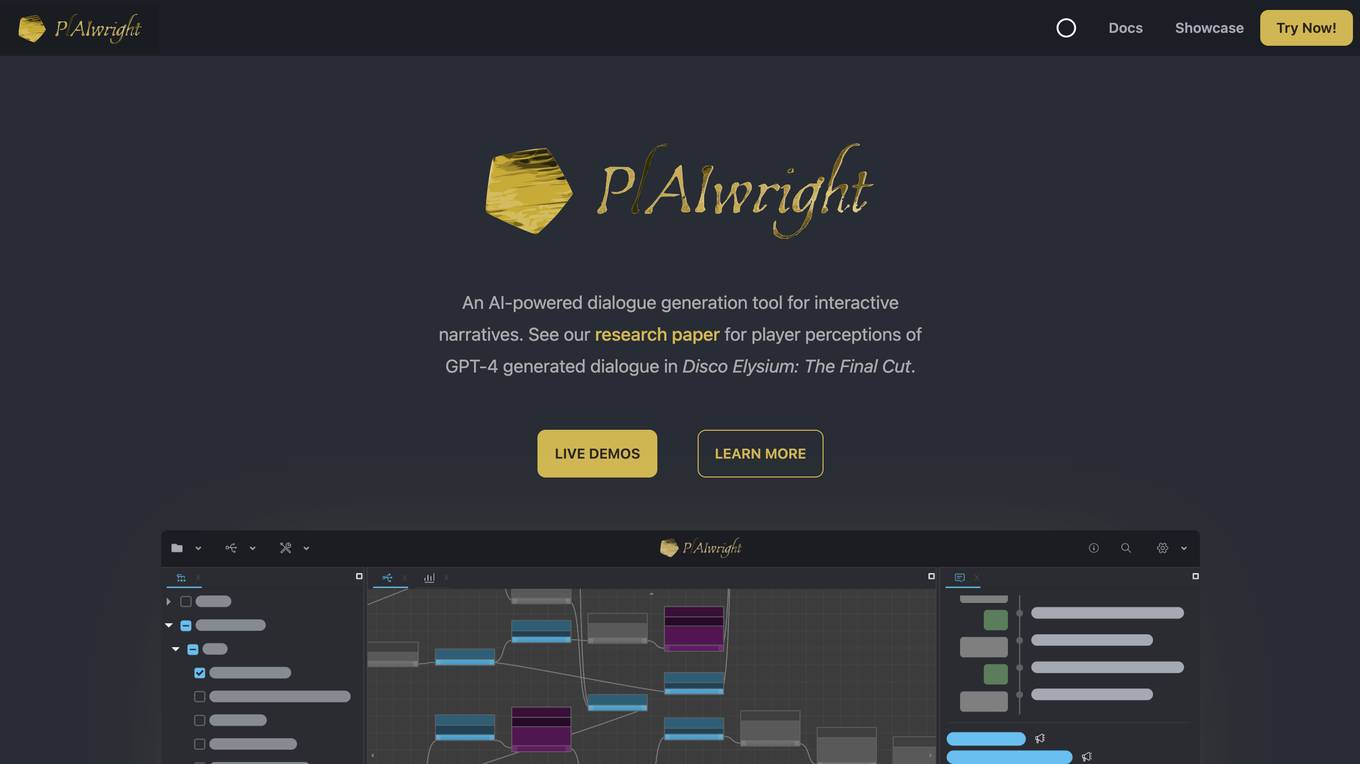
pl.aiwright
pl.aiwright is an AI-powered dialogue generation tool designed for interactive narratives. It offers features such as analyzing and clustering large dialogue graphs, dialogue generation using a mix of code and natural language, playtests for gathering user feedback, and tools for experimental analysis. The tool enables users to create engaging dialogues for various applications, such as games, virtual simulations, and interactive storytelling.
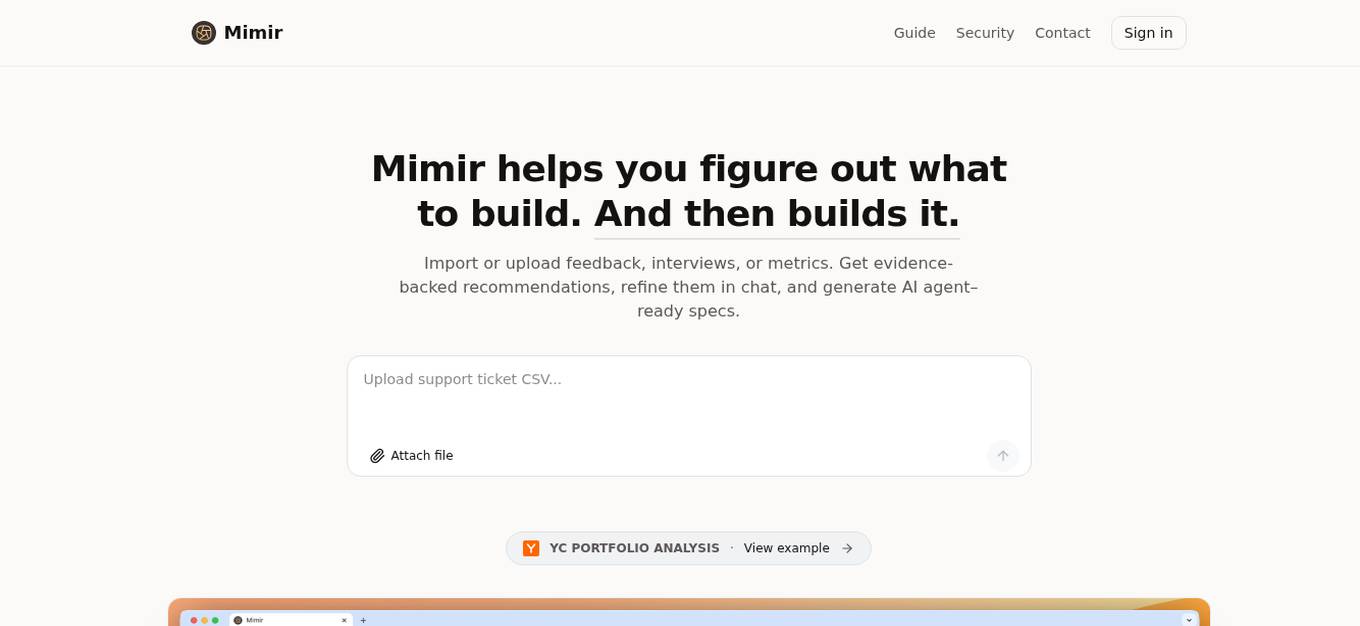
Mimir
Mimir is an AI-native product management tool that helps users figure out what to build next by importing or uploading feedback, interviews, or metrics. It provides evidence-backed recommendations, refines them in chat, and generates AI agent-ready specs. Mimir stands out by creating GitHub issues from recommendations with complete specs and implementation tasks, enabling users to ship features in hours. The tool extracts structured insights, clusters them into themes, and generates prioritized recommendations based on product management best practices. Mimir learns from every interaction, aligning recommendations with the user's business context over time.

This Beach Does Not Exist
This Beach Does Not Exist is an AI application powered by StyleGAN2-ADA network, capable of generating realistic beach images. The website showcases AI-generated beach landscapes created from a dataset of approximately 20,000 images. Users can explore the training progress of the network, generate random images, utilize K-Means Clustering for image grouping, and download the network for experimentation or retraining purposes. Detailed technical information about the network architecture, dataset, training steps, and metrics is provided. The application is based on the GAN architecture developed by NVIDIA Labs and offers a unique experience of creating virtual beach scenes through AI technology.
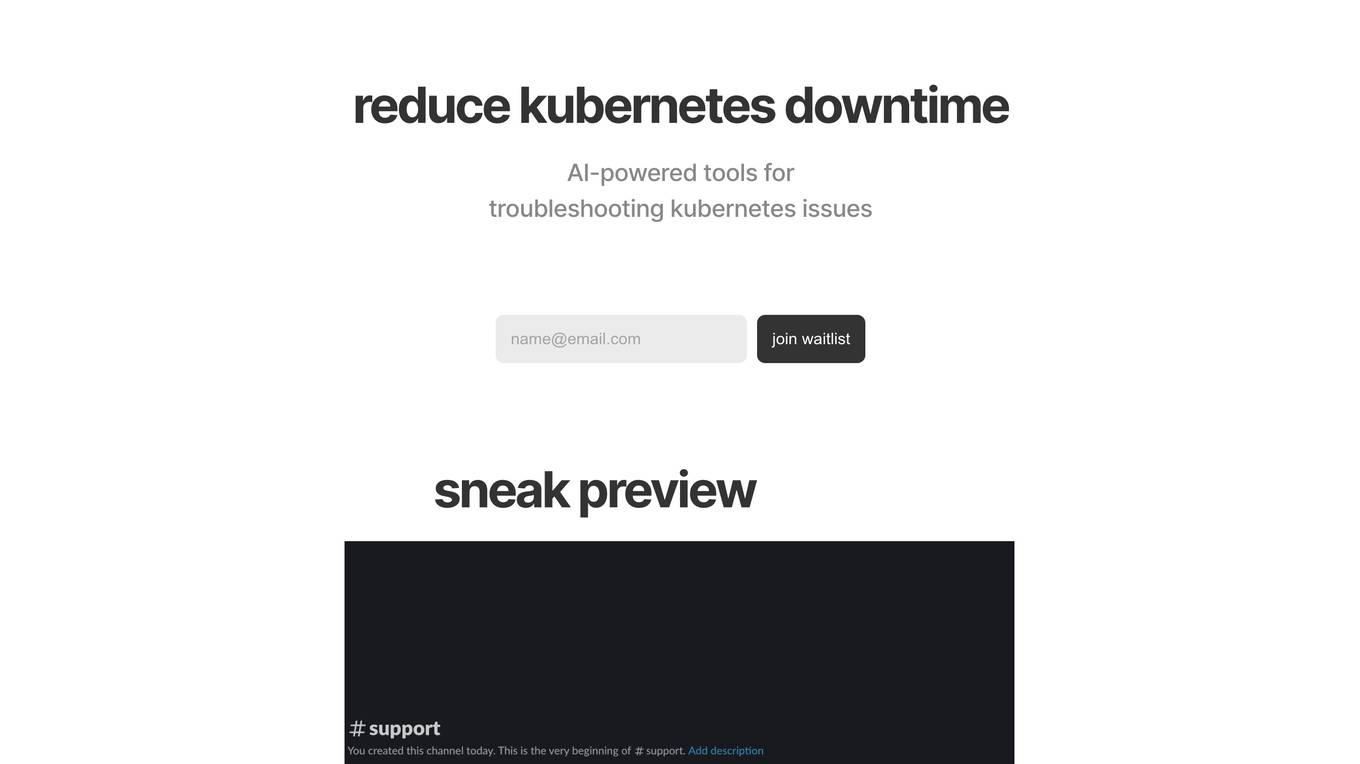
KubeHelper
KubeHelper is an AI-powered tool designed to reduce Kubernetes downtime by providing troubleshooting solutions and command searches. It seamlessly integrates with Slack, allowing users to interact with their Kubernetes cluster in plain English without the need to remember complex commands. With features like troubleshooting steps, command search, infrastructure management, scaling capabilities, and service disruption detection, KubeHelper aims to simplify Kubernetes operations and enhance system reliability.

Backend.AI
Backend.AI is an enterprise-scale cluster backend for AI frameworks that offers scalability, GPU virtualization, HPC optimization, and DGX-Ready software products. It provides a fast and efficient way to build, train, and serve AI models of any type and size, with flexible infrastructure options. Backend.AI aims to optimize backend resources, reduce costs, and simplify deployment for AI developers and researchers. The platform integrates seamlessly with existing tools and offers fractional GPU usage and pay-as-you-play model to maximize resource utilization.

Groq
Groq is a fast AI inference tool that offers GroqCloud™ Platform and GroqRack™ Cluster for developers to build and deploy AI models with ultra-low-latency inference. It provides instant intelligence for openly-available models like Llama 3.1 and is known for its speed and compatibility with other AI providers. Groq powers leading openly-available AI models and has gained recognition in the AI chip industry. The tool has received significant funding and valuation, positioning itself as a strong challenger to established players like Nvidia.

Mystic.ai
Mystic.ai is an AI tool designed to deploy and scale Machine Learning models with ease. It offers a fully managed Kubernetes platform that runs in your own cloud, allowing users to deploy ML models in their own Azure/AWS/GCP account or in a shared GPU cluster. Mystic.ai provides cost optimizations, fast inference, simpler developer experience, and performance optimizations to ensure high-performance AI model serving. With features like pay-as-you-go API, cloud integration with AWS/Azure/GCP, and a beautiful dashboard, Mystic.ai simplifies the deployment and management of ML models for data scientists and AI engineers.
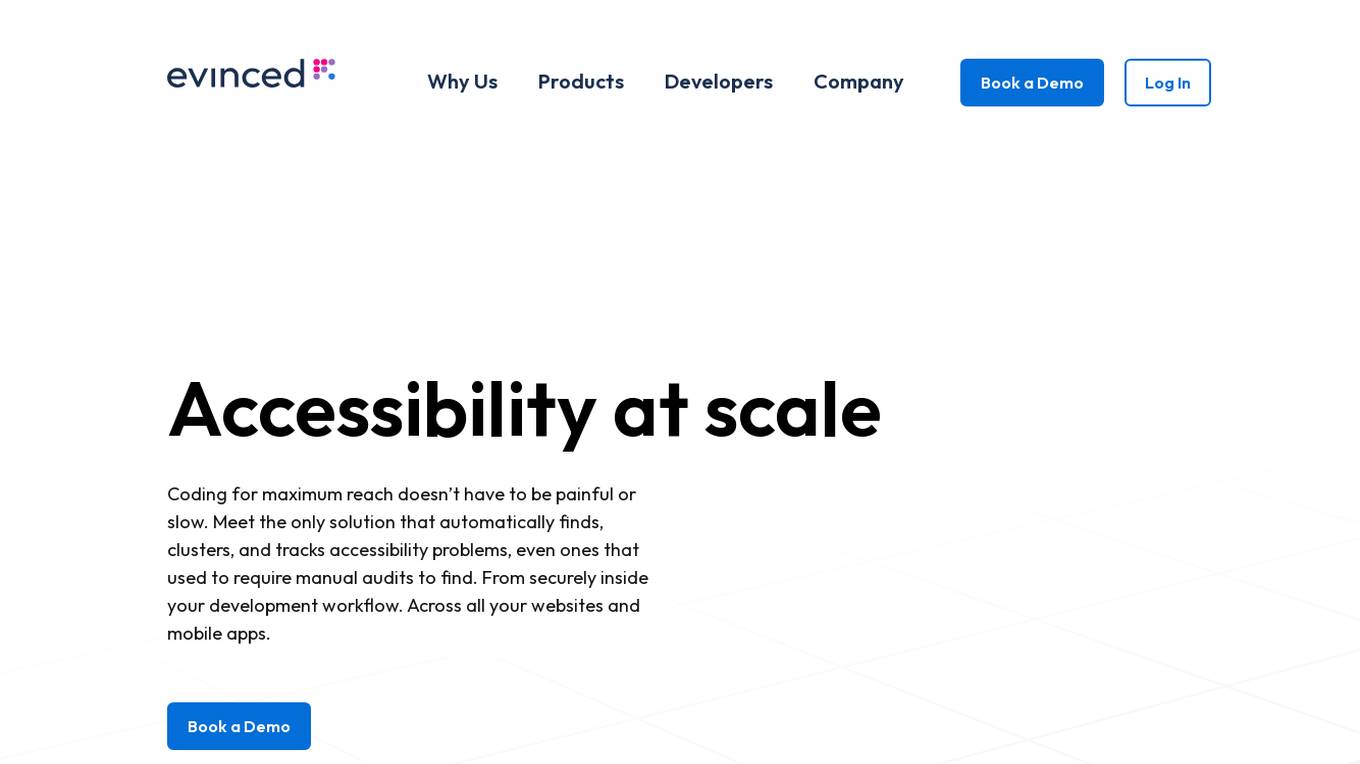
Evinced
Evinced is an AI-powered accessibility tool that helps developers identify and address accessibility issues in websites and mobile apps. By utilizing AI and machine learning, Evinced can automatically find, cluster, and track accessibility problems that would typically require manual audits. The tool provides a comprehensive solution for developers to ensure their digital products are accessible to all users. Evinced offers features such as advanced bug detection, organization of issues, lifecycle tracking, easy integration with existing testing systems, and more.
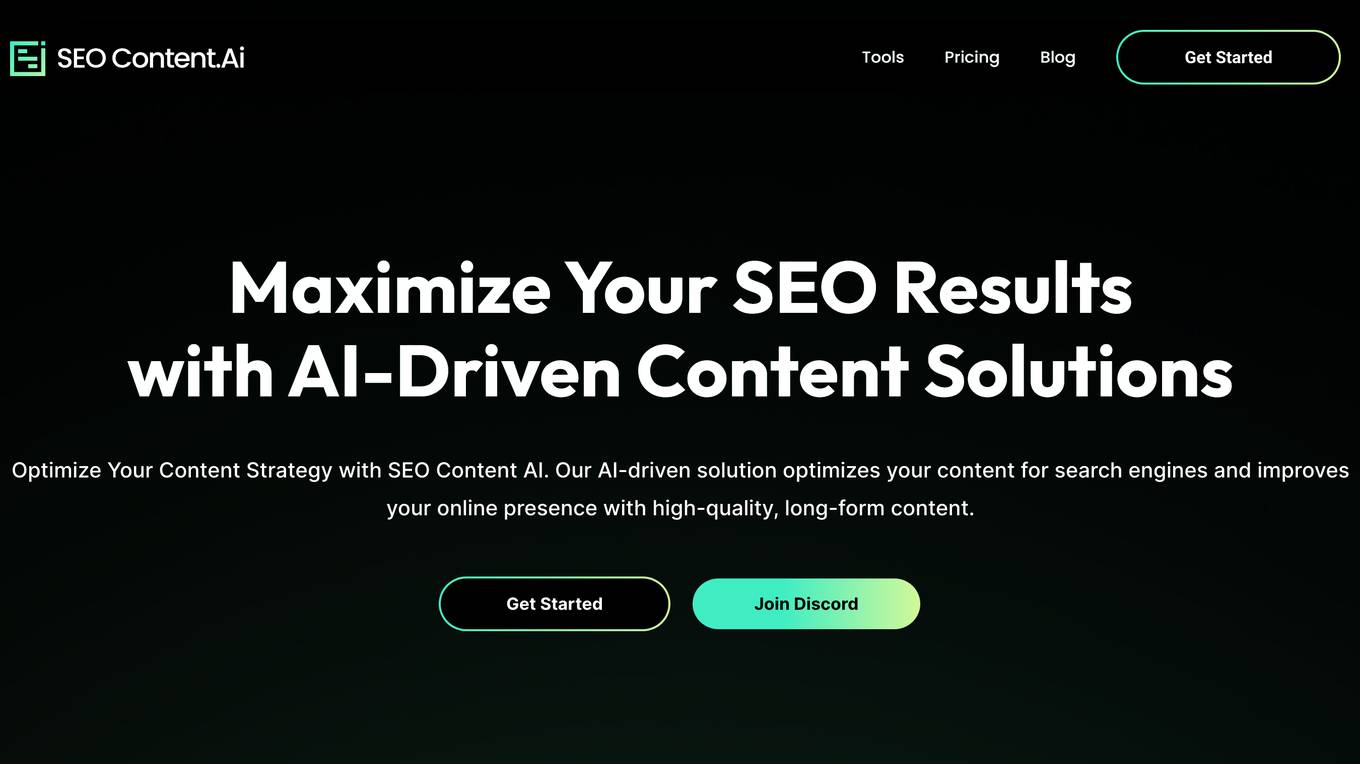
SEO Content AI
SEO Content AI is an AI-driven solution that optimizes content for search engines and enhances online presence with high-quality, long-form content. It offers features like Bulk Content Generation, Content Cluster Creation, Multi-Language Content Generation, AI-Powered Internal Linking, and Exact Keyword Targeting. The application helps users automate content creation, improve SEO, and tailor content strategies to meet specific goals. With capabilities for local cluster content automation and multi-cluster content automation, SEO Content AI streamlines content creation and boosts local search ranking.
1 - Open Source AI Tools
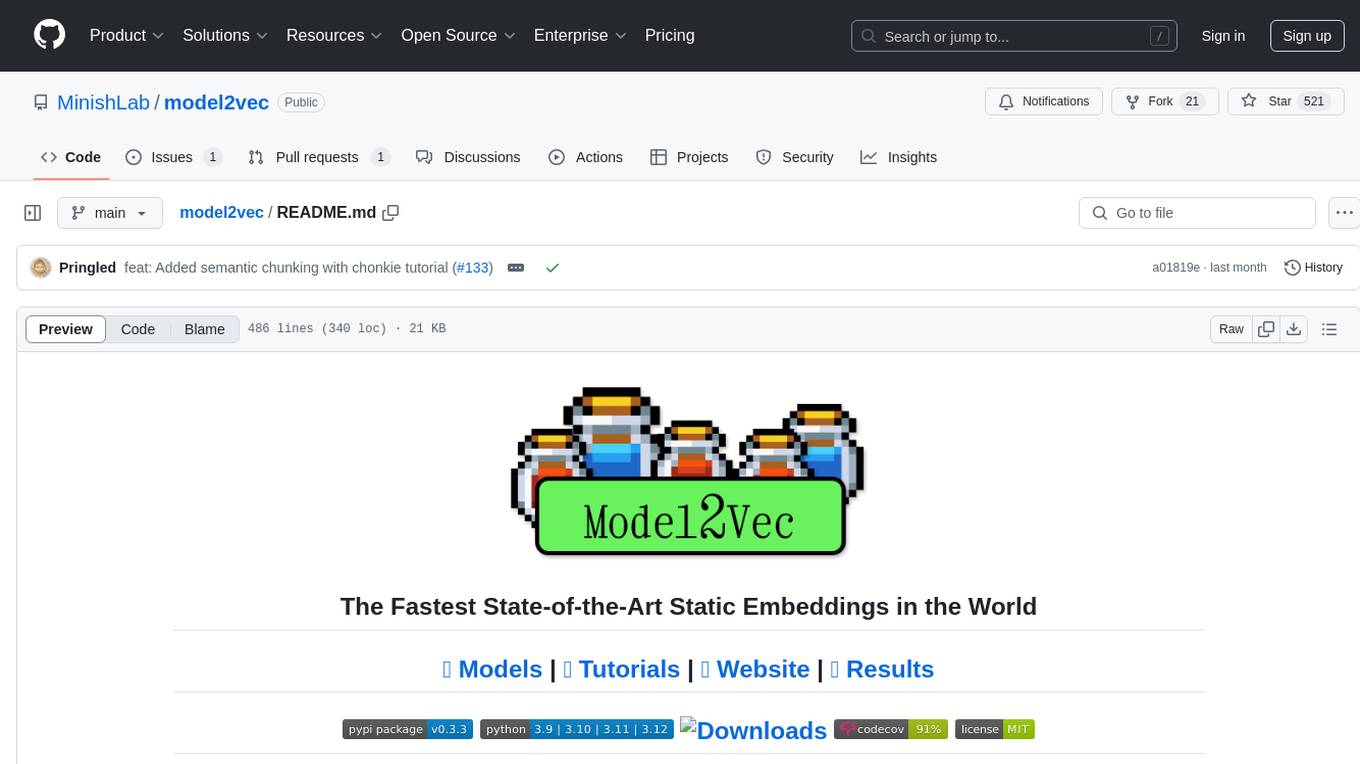
model2vec
Model2Vec is a technique to turn any sentence transformer into a really small static model, reducing model size by 15x and making the models up to 500x faster, with a small drop in performance. It outperforms other static embedding models like GLoVe and BPEmb, is lightweight with only `numpy` as a major dependency, offers fast inference, dataset-free distillation, and is integrated into Sentence Transformers, txtai, and Chonkie. Model2Vec creates powerful models by passing a vocabulary through a sentence transformer model, reducing dimensionality using PCA, and weighting embeddings using zipf weighting. Users can distill their own models or use pre-trained models from the HuggingFace hub. Evaluation can be done using the provided evaluation package. Model2Vec is licensed under MIT.
10 - OpenAI Gpts
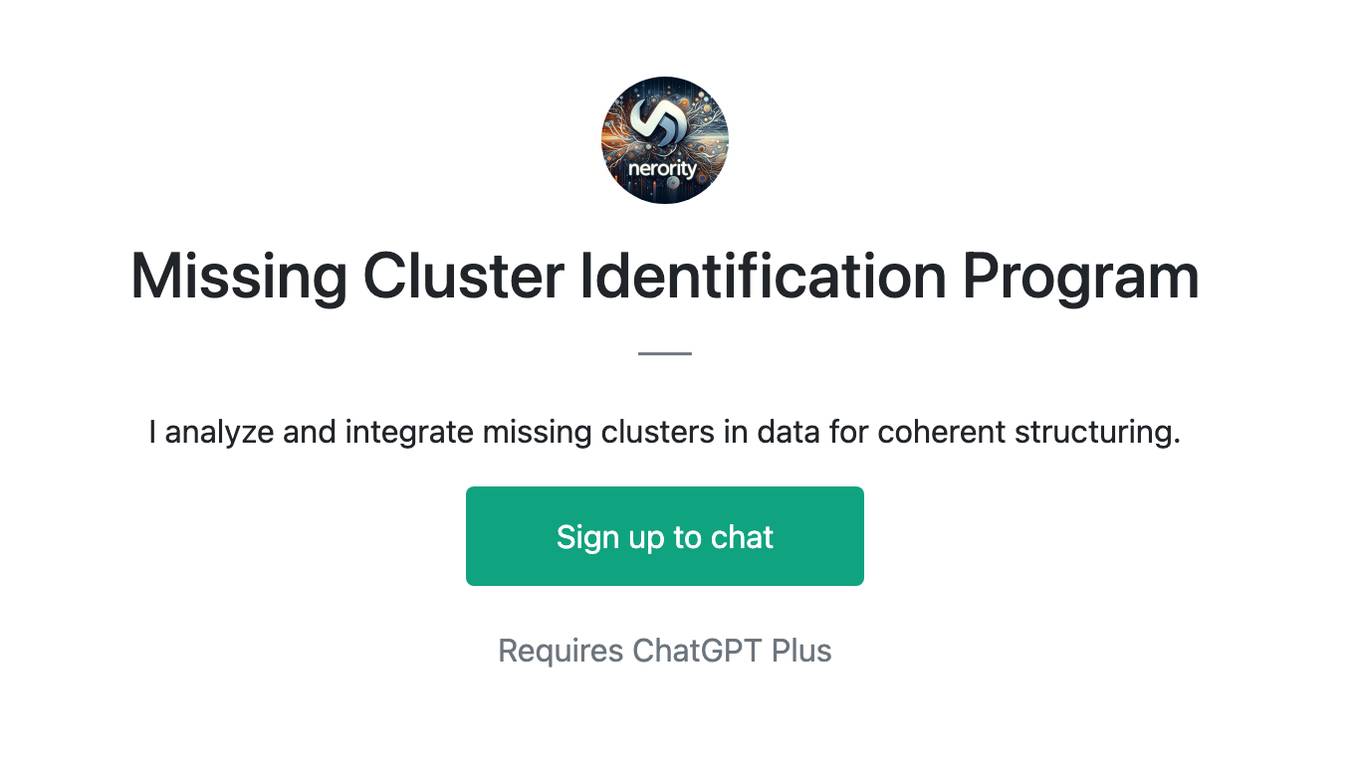
Missing Cluster Identification Program
I analyze and integrate missing clusters in data for coherent structuring.
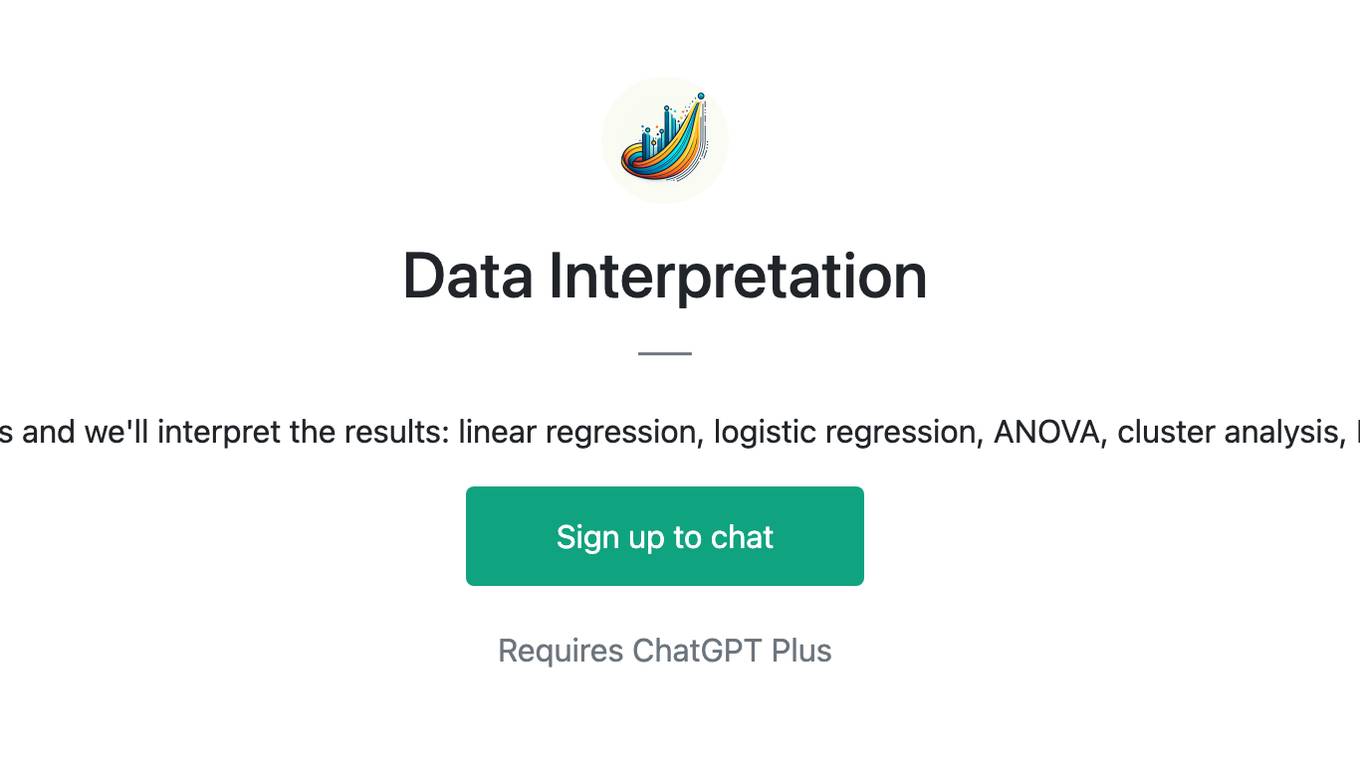
Data Interpretation
Upload an image of a statistical analysis and we'll interpret the results: linear regression, logistic regression, ANOVA, cluster analysis, MDS, factor analysis, and many more
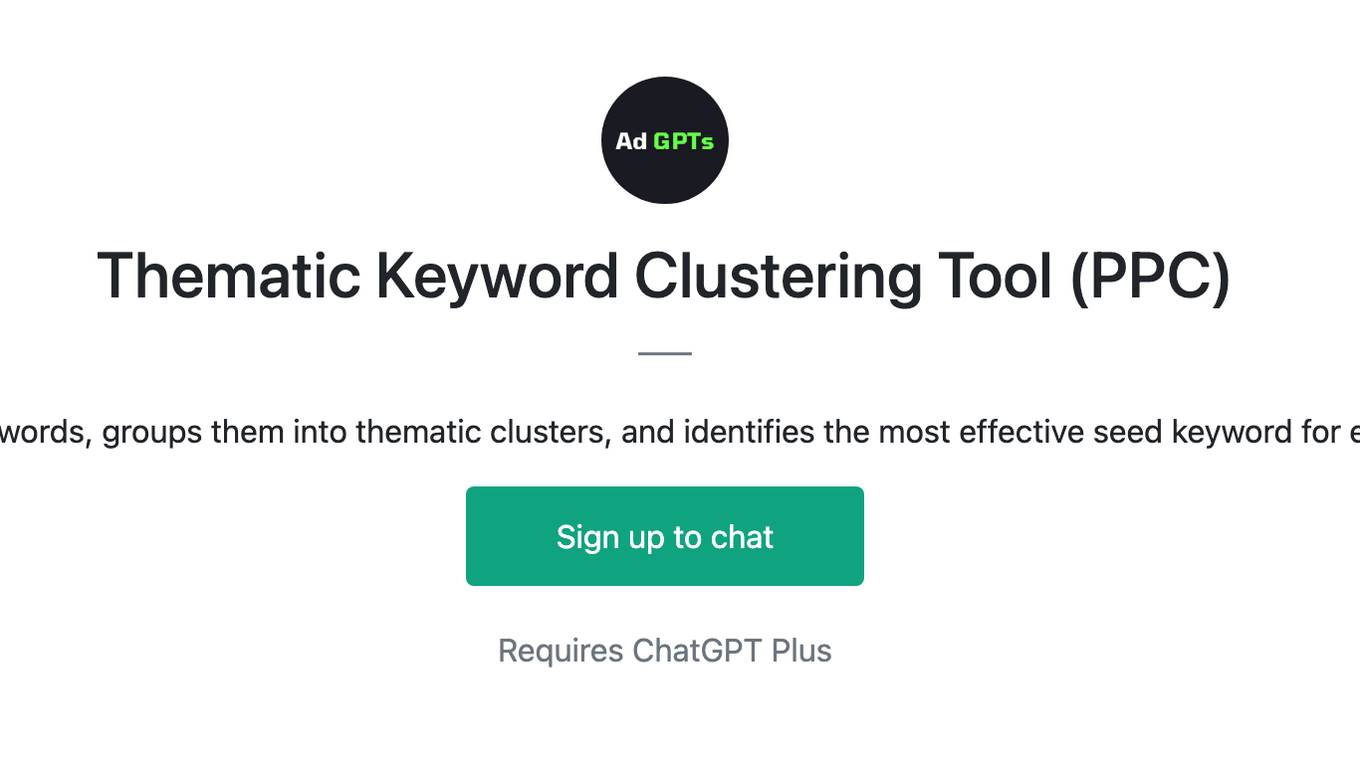
Thematic Keyword Clustering Tool (PPC)
Analyzes keywords, groups them into thematic clusters, and identifies the most effective seed keyword for each group.
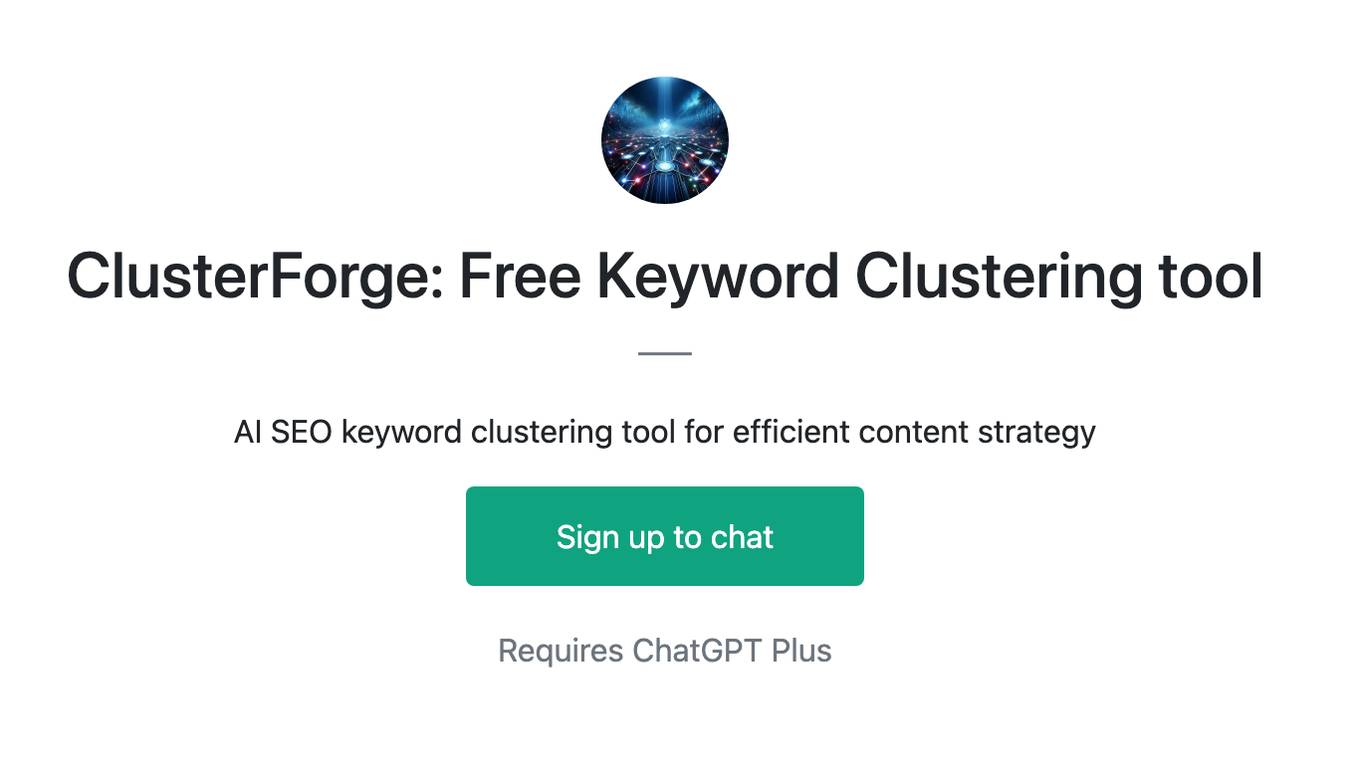
ClusterForge: Free Keyword Clustering tool
AI SEO keyword clustering tool for efficient content strategy

Docker and Docker Swarm Assistant
Expert in Docker and Docker Swarm solutions and troubleshooting.
